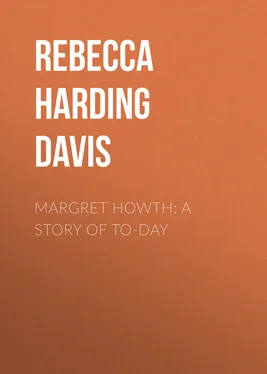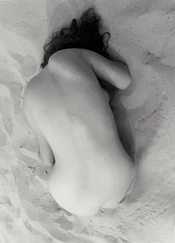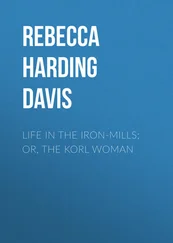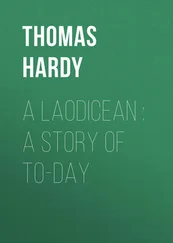Rebecca Harding Davis - Margret Howth - A Story of To-day
Здесь есть возможность читать онлайн «Rebecca Harding Davis - Margret Howth - A Story of To-day» — ознакомительный отрывок электронной книги совершенно бесплатно, а после прочтения отрывка купить полную версию. В некоторых случаях можно слушать аудио, скачать через торрент в формате fb2 и присутствует краткое содержание. Жанр: foreign_sf, foreign_antique, foreign_prose, на английском языке. Описание произведения, (предисловие) а так же отзывы посетителей доступны на портале библиотеки ЛибКат.
- Название:Margret Howth: A Story of To-day
- Автор:
- Жанр:
- Год:неизвестен
- ISBN:нет данных
- Рейтинг книги:3 / 5. Голосов: 1
-
Избранное:Добавить в избранное
- Отзывы:
-
Ваша оценка:
- 60
- 1
- 2
- 3
- 4
- 5
Margret Howth: A Story of To-day: краткое содержание, описание и аннотация
Предлагаем к чтению аннотацию, описание, краткое содержание или предисловие (зависит от того, что написал сам автор книги «Margret Howth: A Story of To-day»). Если вы не нашли необходимую информацию о книге — напишите в комментариях, мы постараемся отыскать её.
Margret Howth: A Story of To-day — читать онлайн ознакомительный отрывок
Ниже представлен текст книги, разбитый по страницам. Система сохранения места последней прочитанной страницы, позволяет с удобством читать онлайн бесплатно книгу «Margret Howth: A Story of To-day», без необходимости каждый раз заново искать на чём Вы остановились. Поставьте закладку, и сможете в любой момент перейти на страницу, на которой закончили чтение.
Интервал:
Закладка:
CHAPTER II
The evening came on, slow and cold. Life itself, the Doctor thought, impatiently, was cool and tardy here among the hills. Even he fell into the tranquil tone, and chafed under it. Nowhere else did the evening gray and sombre into the mysterious night impalpably as here. The quiet, wide and deep, folded him in, forced his trivial heat into silence and thought. The world seemed to think there. Quiet in the dead seas of fog, that filled the valleys like restless vapour curdled into silence; quiet in the listening air, stretching gray up to the stars,—in the solemn mountains, that stood motionless, like hoary-headed prophets, waiting with uplifted hands, day and night, to hear the Voice, silent now for centuries; the very air, heavy with the breath of the sleeping pine-forests, moved slowly and cold, like some human voice weary with preaching to unbelieving hearts of a peace on earth. This man's heart was unbelieving; he chafed in the oppressive quiet; it was unfeeling mockery to a sick and hungry world,—a dead torpor of indifference. Years of hot and turbid pain had dulled his eyes to the eternal secret of the night; his soul was too sore with stumbling, stung, inflamed with the needs and suffering of the countless lives that hemmed him in, to accept the great prophetic calm. He was blind to the prophecy written on the earth since the day God first bade it tell thwarted man of the great To-Morrow.
He turned from the night in-doors. Human hearts were his proper study. The old house, he thought, slept with the rest. One did not wonder that the pendulum of the clock swung long and slow. The frantic, nervous haste of town-clocks chorded better with the pulse of human life. Yet life in the veins of these people flowed slow and cool; their sorrows and joys were few and life-long. The enduring air suited this woman, Margret Howth. Her blood could never ebb or flow with sudden gusts of passion, like his own, throbbing, heating continually: one current, absorbing, deep, would carry its tide from one eternity to the other, one love or one hate. Whatever power was in the tide should be his, in its entirety. It was his right. Was not his aim high, the highest? It was his right.
Margret, looking up, saw the man's eye fixed on her. She met it coolly. All her short life, this strange man, so tender to the weak, had watched her with a sort of savage scorn, sneering at her childish, dreamy apathy, driving her from effort to effort with a scourge of contempt. What did he want now with her? Her duty was light; she took it up,—she was glad to take it up; what more would he have? She put the whole matter away from her.
It grew late. She sat down by the lamp and began to read to her father, as usual. Her mother put away her knitting; Joel came in half-asleep; the Doctor put out his everlasting cigar, and listened, as he did everything else, intently. It was an old story that she read,—the story of a man who walked the fields and crowded streets of Galilee eighteen hundred years ago. Knowles, with his heated brain, fancied that the silence without in the night grew deeper, that the slow-moving air stopped in its course to listen. Perhaps the simple story carried a deeper meaning to these brooding mountains and solemn sky than to the purblind hearts within. It was a far-off story to them,—very far off. The old school-master heard it with a lowered head, with the proud obedience with which a cavalier would receive his leader's orders. Was not the leader a knights the knight of truest courage? All that was high, chivalric in the old man sprang up to own him Lord. That he not only preached to, but ate and drank with publicans and sinners, was a requirement of his mission; nowadays–. Joel heard the "good word" with a bewildered consciousness of certain rules of honesty to be observed next day, and a maze of crowns and harps shining somewhere beyond. As for any immediate connection between the teachings of this book and "The Daily Gazette," it was pure blasphemy to think of it. The Lord held those old Jews in His hand, of course; but as for the election next month, that was quite another thing. If Joel thrust the history out of the touch of common life, the Doctor brought it down, and held it there on trial. To him it was the story of a Reformer who, eighteen centuries ago, had served his day. Could he serve this day? Could he? The need was desperate. Was there anything in this Christianity, freed from bigotry, to work out the awful problem which the ages had left for America to solve? He doubted it. People called this old Knowles an infidel, said his brain was as unnatural and distorted as his body. God, looking down into his heart that night, saw the savage wrestling there, and judged him with other eyes than theirs.
The story stood alive in his throbbing brain demanding hearing. All things were real to this man, this uncouth mass of flesh that his companions sneered at; most real of all, the unhelped pain of life, the great seething mire of dumb wretchedness in streets and alleys, the cry for aid from the starved souls of the world. You and I have other work to do than to listen,—pleasanter. But he, coming out of the mire, his veins thick with the blood of a despised race, had carried up their pain and hunger with him: it was the most real thing on earth to him,—more real than his own share in the unseen heaven or hell. By the reality, the peril of the world's instant need, he tried the offered help from Calvary. It was the work of years, not of this night. Perhaps, if they who preach Christ crucified had doubted him as this man did, their work in the coming heaven might be higher,—and ours, who hear them. When the girl had finished reading, she went out into the cool air. The Doctor passed her without notice. He went, in his lumbering way, down the hill into the city; glad to go; the trustful, waiting quiet oppressed, taunted him. It sent him back more mad against Destiny, his heart more bitter in its great pity. Let him go to the great city, with its stifling gambling-hells, its negro-pens, its foul cellars;—his place and work. If he stumble blindly against unconquerable ills, and die, others have so stumbled and so died. Do you think their work is lost?
Margret stood looking down at the sloping moors and fog. She, too, had her place and work. She thought that night she saw it clearly, and kept her eyes fixed on it, as I said. They plodded steadily down the wide years opening before her. Whatever slow, unending toil lay in them, whatever hungry loneliness, or coarseness of deed, she saw it all, shrinking from nothing. She looked at the big blue-corded veins in her wrist, full of untainted blood,—gauged herself coolly, her lease of life, her power of endurance,—measured it out against the work waiting for her. No short task, she knew that. She would be old before it was finished, quite an old woman, hard, mechanical, worn out. But the day would be so bright, when it came, it would atone for all: the day would be bright, the home warm again; it would hold all that life had promised her of good.
All? Oh, Margret, Margret! Was there no sullen doubt in the brave resolve? Was there no shadow just then, dark, ironical, blotting out father and mother and home, creeping nearer, less alien to your soul than these, than even your God?
If any such cold, masterful shadow rose out of years gone, and clutched at the truest life of her heart, she stifled it, and thrust it down. And yet, leaning on the gate, and thinking vacantly, she remembered a time when through that shadow, she believed more in a God than she did now. When, by the help of that very dead hope, He of whom she read to-night stood close, an infinitely tender Helper, that with the differing human loves she knew, had loved His mother and Mary. Therefore, a Helper. Now, struggle as she would for warmth or healthy hopes, the world was gray and silent. Her defeated woman's nature called it so, bitterly. Christ was a dim, ideal power, heaven far-off. She doubted if it held anything as real as that which she had lost.
Читать дальшеИнтервал:
Закладка:
Похожие книги на «Margret Howth: A Story of To-day»
Представляем Вашему вниманию похожие книги на «Margret Howth: A Story of To-day» списком для выбора. Мы отобрали схожую по названию и смыслу литературу в надежде предоставить читателям больше вариантов отыскать новые, интересные, ещё непрочитанные произведения.
Обсуждение, отзывы о книге «Margret Howth: A Story of To-day» и просто собственные мнения читателей. Оставьте ваши комментарии, напишите, что Вы думаете о произведении, его смысле или главных героях. Укажите что конкретно понравилось, а что нет, и почему Вы так считаете.












